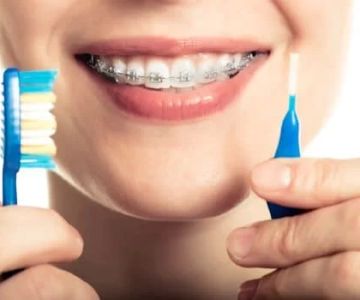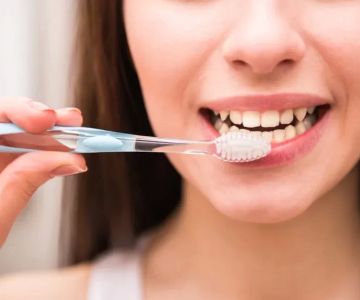Introduction: The Vital Link Between Oral Hygiene and Overall Health
Oral hygiene goes beyond just keeping your teeth clean and your breath fresh; it plays a crucial role in maintaining your overall health. For years, dental professionals have emphasized the importance of brushing and flossing, but the impact of oral hygiene on your health is more significant than many people realize. Poor oral hygiene has been linked to a variety of health problems, from gum disease to heart disease. This article explores how taking care of your teeth and gums can influence your overall health and why good oral hygiene is essential for a long, healthy life.
The Connection Between Oral Health and Chronic Diseases
One of the most compelling reasons to practice good oral hygiene is the strong connection between oral health and chronic diseases. Poor dental hygiene can lead to gum disease (periodontitis), which is associated with a higher risk of heart disease, stroke, and diabetes. Studies have shown that the bacteria responsible for gum infections can enter the bloodstream and affect other parts of the body. When left untreated, these infections can cause inflammation, which is a contributing factor to the development of various chronic conditions.
For example, research has found that people with gum disease are twice as likely to suffer from heart disease compared to those with healthy gums. Furthermore, the links between poor oral health and diabetes are well documented. Diabetes can reduce the body’s ability to fight infections, including those in the gums, leading to a higher risk of gum disease.
The connection between oral hygiene and these diseases highlights the importance of regular brushing, flossing, and dental checkups. By maintaining healthy gums and teeth, you are also helping protect your heart and overall well-being.
How Oral Hygiene Affects Your Immune System
Maintaining good oral hygiene can also boost your immune system. When bacteria in the mouth go unchecked, they can enter the bloodstream and trigger an immune response. The immune system works hard to fight these bacteria, which can put stress on the body and lower its ability to defend against other infections. Chronic oral infections can lead to inflammation throughout the body, which is harmful in the long term.
Good oral hygiene helps prevent the build-up of harmful bacteria and plaque, keeping the immune system from being overburdened. Regular brushing with fluoride toothpaste and flossing can prevent gum disease and reduce the amount of bacteria in the mouth, making it easier for the immune system to maintain its defense against other illnesses.
The Impact of Oral Health on Pregnancy
Oral hygiene is especially important for pregnant women. Poor dental health can lead to complications such as preterm birth and low birth weight. The bacteria that cause gum disease can reach the bloodstream, affecting the mother’s overall health and potentially harming the developing baby. Pregnant women are more prone to gum disease due to hormonal changes, so it's important to maintain excellent oral hygiene during this time.
Studies have shown that women with poor oral health are more likely to have pregnancy-related complications. Regular visits to the dentist and proper brushing and flossing habits can help reduce the risk of such problems and ensure the health of both mother and baby.
Oral Hygiene and Mental Health: The Surprising Connection
Did you know that oral health can also impact your mental health? There’s growing evidence that poor oral hygiene may contribute to conditions like depression and anxiety. The inflammation caused by gum disease can influence brain health, potentially leading to cognitive decline and mood disorders.
People with gum disease often experience pain and discomfort, which can affect their quality of life. The social stigma associated with bad breath or visible tooth decay can also lead to lower self-esteem and social withdrawal. By taking care of your oral health, you can avoid these negative impacts and feel better both physically and mentally.
What Are the Best Practices for Maintaining Oral Hygiene?
Now that we understand how important oral hygiene is for overall health, let’s discuss some best practices for maintaining good dental care:
- Brush Twice a Day: Brushing your teeth with fluoride toothpaste at least twice a day helps remove plaque and bacteria that can cause tooth decay and gum disease.
- Floss Daily: Flossing removes food particles and plaque between the teeth where a toothbrush can’t reach. It’s essential for preventing gum disease.
- Visit the Dentist Regularly: Regular dental checkups help identify early signs of dental problems and allow for professional cleaning to remove tartar buildup.
- Eat a Healthy Diet: A balanced diet rich in vitamins and minerals, especially calcium, supports healthy teeth and gums.
- Quit Smoking: Smoking is a major risk factor for gum disease, so quitting can improve your oral and overall health.
The Importance of Consistent Oral Care in Children and Adults
Oral hygiene isn’t just important for adults; it’s crucial for children as well. Teaching kids to brush their teeth regularly and visit the dentist early in life can set the foundation for a lifetime of healthy smiles. For adults, maintaining oral health is a continuous process, especially as we age. Gum disease and tooth decay can become more prevalent in older adults, so it’s important to stay vigilant about oral care throughout life.
Moreover, for individuals with existing health conditions like diabetes or heart disease, extra care should be taken to prevent oral infections. Consulting with a dentist and healthcare provider regularly will help ensure your oral health doesn’t negatively affect your overall health.
Conclusion: Protect Your Overall Health with Good Oral Hygiene
The link between oral hygiene and overall health is undeniable. From heart disease to mental health, maintaining good oral hygiene can help prevent a variety of health issues. It’s not just about brushing your teeth for cosmetic reasons, but about investing in your long-term well-being. By practicing consistent oral care habits, visiting the dentist regularly, and addressing any dental concerns promptly, you can protect both your mouth and your body.
If you're looking for professional dental care and guidance, don't hesitate to visit our site [Dentistry Toothtruth] for expert advice and services tailored to your needs. Taking care of your oral health today will lead to a healthier tomorrow.







 Westgate Dental Arts
Westgate Dental Arts Coventry Family Dental
Coventry Family Dental Familia Dental
Familia Dental Dr. Daniel S. Fife, DDS
Dr. Daniel S. Fife, DDS Dentistry At Suburban Square: Michael I. Wollock, DMD
Dentistry At Suburban Square: Michael I. Wollock, DMD Comfort Care Dental
Comfort Care Dental The Importance of Oral Health Education During Pregnancy for a Healthy Pregnancy
The Importance of Oral Health Education During Pregnancy for a Healthy Pregnancy Why Skipping Dental Checkups Can Lead to Bigger Oral Health Problems
Why Skipping Dental Checkups Can Lead to Bigger Oral Health Problems Advantages of Porcelain Dental Restorations
Advantages of Porcelain Dental Restorations Best Tips for Brushing Your Teeth Properly for Healthy Gums: Essential Techniques for Oral Health
Best Tips for Brushing Your Teeth Properly for Healthy Gums: Essential Techniques for Oral Health How Can Diabetes Cause Tooth and Gum Problems? Preventing and Managing Oral Health Issues
How Can Diabetes Cause Tooth and Gum Problems? Preventing and Managing Oral Health Issues Healthy Habits for Promoting Good Oral Health and Hygiene: Tips for a Healthy Smile
Healthy Habits for Promoting Good Oral Health and Hygiene: Tips for a Healthy Smile